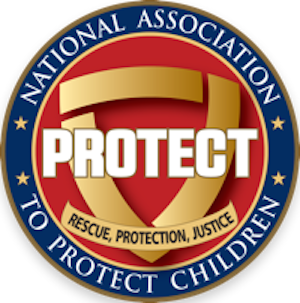I was alarmed by expansion of government surveillance before Edward Snowden was even born, back when “NSA” stood for “No Such Agency.” And I am grateful to those who fight to protect the Bill of Rights.[read_more]
But there is dangerous confusion going around about a sexual predator bill that is dividing advocates of privacy rights and protectors of children (HB 1946/SB 919). The legislation is designed to prevent Internet service providers from tipping off child predator suspects when police have given them an administrative subpoena.
First a little background.
Virginia law enforcement has used administrative subpoenas for years in child sexual exploitation and abduction cases, as has federal law enforcement. Critics on the right and left have misleadingly claimed the legislation in question would create new “secret subpoenas.” However, the only issue under debate iswhether ISPs should be allowed to notify suspects of an administrative subpoena in abduction, trafficking and child pornography cases before law enforcement has a chance to secure and serve a warrant.
There’s a good reason for administrative subpoenas in child sexual exploitation and abduction cases. That reason is rooted in the flourishing, fast-moving child sexual exploitation marketplace.
With the rise of the Internet in the mid-90’s, millions of predatory pedophiles worldwide suddenly began connecting with one another online. Like legions of other web surfers, they were looking for sexually-oriented images and video, in their case child pornography.
This is not to equate adult pornography with child pornography. The fact is, whatever you think of the former, there is one enormous difference between the two: every video and image of child pornography is a crime scene recording of an actual child being sexually abused.
Again and again, law enforcement has testified before the Virginia General Assembly about the true nature of those crime scenes: crying toddlers being raped… incest against children… girls and boys bound and gagged.
Atrocities are also routinely seen by law enforcement unfolding in real-time: children raped for on-demand audiences… criminals arranging to meet or supply victims… Child pornography traders discovered to have young children in their homes.
In Virginia, law enforcement estimates nearly 20,000 child pornography suspects (a number not surprising given convicted offenders and known rates of sexual abuse), but authorities simply don’t have the resources to go out and arrest most of them.
They cope by triaging. Desperately outnumbered investigators pursue those cases most likely to involve hands-on sexual offenders with local child victims. In other words, they race to rescue children in danger. Before requesting an administrative subpoena in these cases, law enforcement has actually seen the crime take place. But all they have is an ip of the offender and in order to serve a warrant against the suspect they need a name and address.
This is equivalent to a police officer seeing a hit and run, he pursues the vehicle, can’t catch the car but gets the license plate number and gets an administrative subpoena for the name and address of the owner of the vehicle. In that scenario would you want DMV to tip off the owner of the car that law enforcement asked for the information?
In one case, agents from the Southern Virginia Internet Crimes Against Children (ICAC) task force tracked child abuse images back through the Internet to the door of a suspect, only to find the little girl in the photos sleeping on the offenders couch.
“Please don’t take my picture,” she asked an officer documenting the crime scene. “Daddy took my picture.”
This is why the sexual predator notification bill is so important. In creating administrative subpoenas for child exploitation cases, the Virginia legislature recognized that obtaining simple Internet account holder information (something the Founders couldn’t envision, but corporate America sure can) was a function that could be streamlined without harm to the Constitution.
Here’s exactly what the bill says:
“By operation of law, the subpoena shall be sealed upon written certification by the attorney for the Commonwealth or the Attorney General that there is reason to believe that notification or disclosure of the existence of the subpoena will endanger the life or physical safety of an individual or lead to flight from prosecution, the destruction of or tampering with evidence, the intimidation of potential witnesses, or otherwise seriously jeopardize an investigation. The subpoena shall include a provision ordering the service provider not to notify or disclose the existence of the subpoena to another person.”
It doesn’t take an advanced degree in criminology to know what an individual with video of children being raped on his computer will do if he is notified he is under investigation by law enforcement.
Are you okay with that?
Are you okay with a politician who is?

